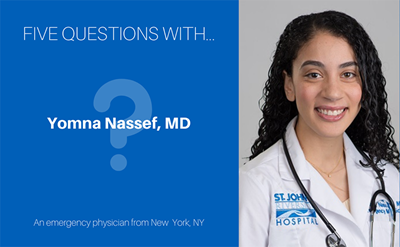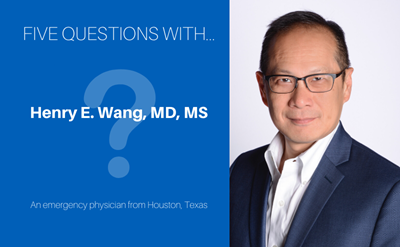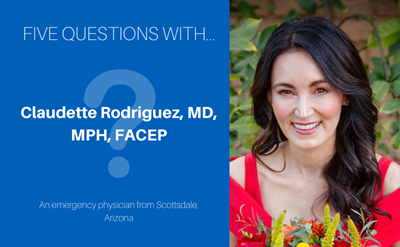I am an emergency medicine physician. I save lives. From heart attacks to strokes to car crashes, we are here for you on the worst day of your life.
Emergency departments are available 24 hours a day, 365 days a year. We have special equipment and highly qualified physicians, nurses and others who respond to every kind of medical emergency.
It is important to know whether you should go to the emergency department or urgent care. If you think that you, or a loved one, is having an emergency, call 911 and get to an emergency department.
Some of the reasons you might need to seek emergency care include;
Loss of consciousness, severe shortness of breath, facial drooping or weakness in an arm or leg, allergic reactions, chest pain, bleeding that does not stop, head trauma, seizures, poisoning, allergic reactions, major broken bones, coughing or vomiting blood, or suicidal feelings.
When should you go to urgent care? If you are experiencing common medical problems and a physician’s office is closed or unable to provide an appointment. Urgent care is not a substitute for emergency care.
Urgent care centers don’t have the same equipment or trained staff that emergency departments have. They treat minor illnesses and injuries, such as flu, fever, earaches, nausea, rashes, animal and insect bites, minor bone fractures and minor cuts.
If you go to an urgent care center with a serious illness or injury, you will be sent or transported to a hospital emergency department, which will delay your care.
Much like neurologists are experts in the brain, we are experts in emergencies. If suddenly you cannot breathe and are gasping for air, you would want an emergency medicine-trained physician in the ER treating you.
If your daughter blacked out and you can’t wake her up, you want an emergency physician. If your elderly grandfather accidentally took too many of his pills and now is acting strange, you want an emergency physician.
Emergency physicians are masters of resuscitating the dying, stabilizing the sick. We train for years treating emergencies – that’s our expertise.
Take for instance, my 50-year-old patient who suffered a heart attack severe enough to stop his heart from beating.
His first stop was through the ER, where I could get his heart beating again. I placed a tube in his airway to artificially keep him breathing, led our team in performing chest compressions, electrically shocked his heart, and chose the appropriate medications to keep his blood circulating.
All of this must occur first before the cardiologist can unclog his arteries. He has to be alive before the cardiologist can make that difference.
Our job is to rapidly diagnose, treat, and decide what the next steps are. Where others think benign diagnoses, our training dictates that we search for the bad and the really bad.
We take pride in what we do. No patient is turned away. Not only are we mandated by law, we are mandated by conscience. Whether it’s the poor, rich, insured, uninsured, famous, not-so-famous, you or me, all patients will receive medical care the ER.
Unlike other types of doctor, our job goes beyond a 9-to-5 office day. We are here every day, all day. Every night, all night. Christmas. Rosh Hashanah. Thanksgiving. Diwali. All year.
Hopefully, you will never need to come to the emergency room for any reason. But if you do, be reassured you are in good, well-trained, expert hands. If we have the answer, we’ll give you the solution. If we don’t have the answer, we can help determine the next step in your treatment.
From simple to complex, we are trained for anything, anyone, at any time. That is what we do.
Edward Lew, MD, FACEP is an emergency physician in Oregon
 American College of Emergency Physicians
American College of Emergency Physicians







